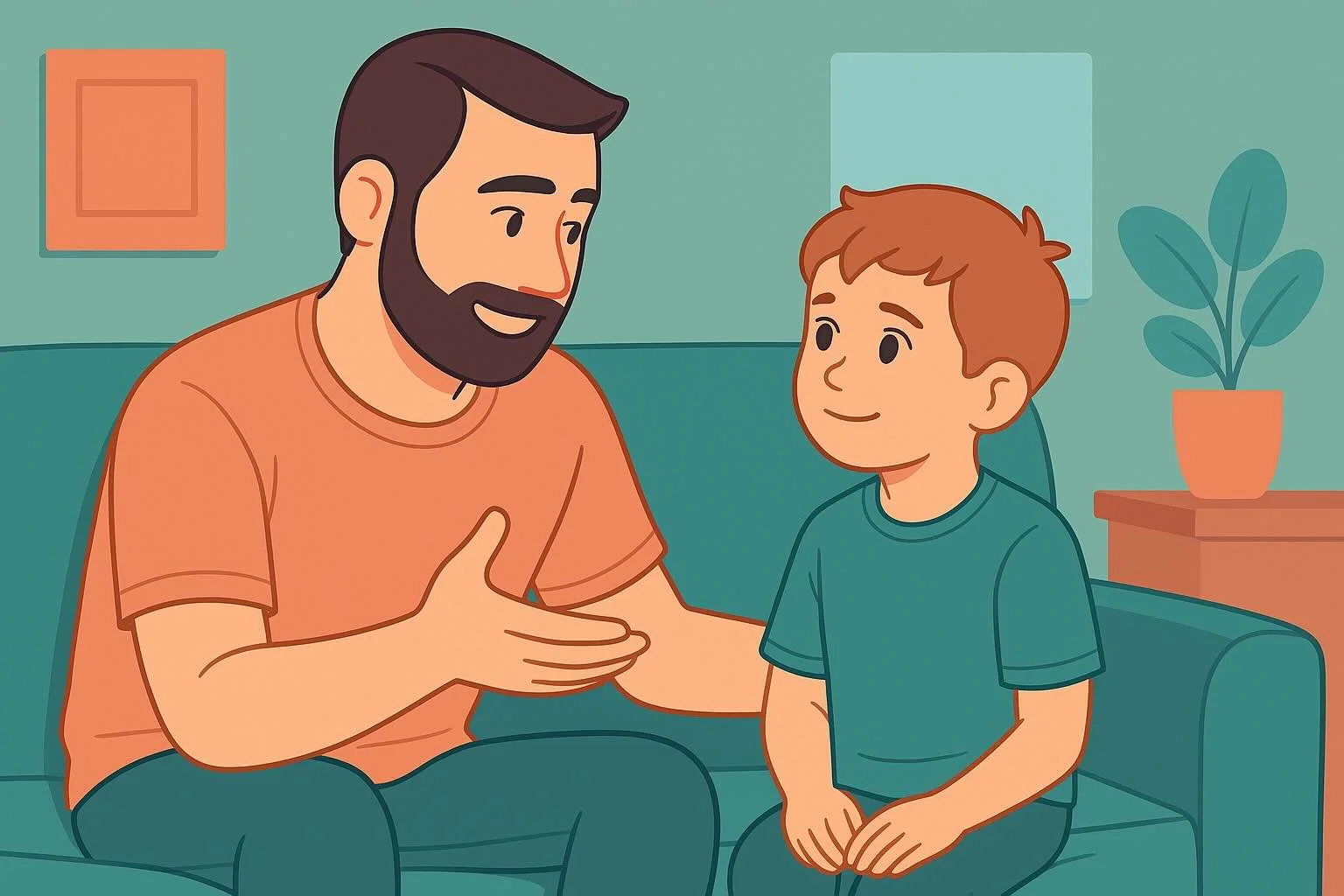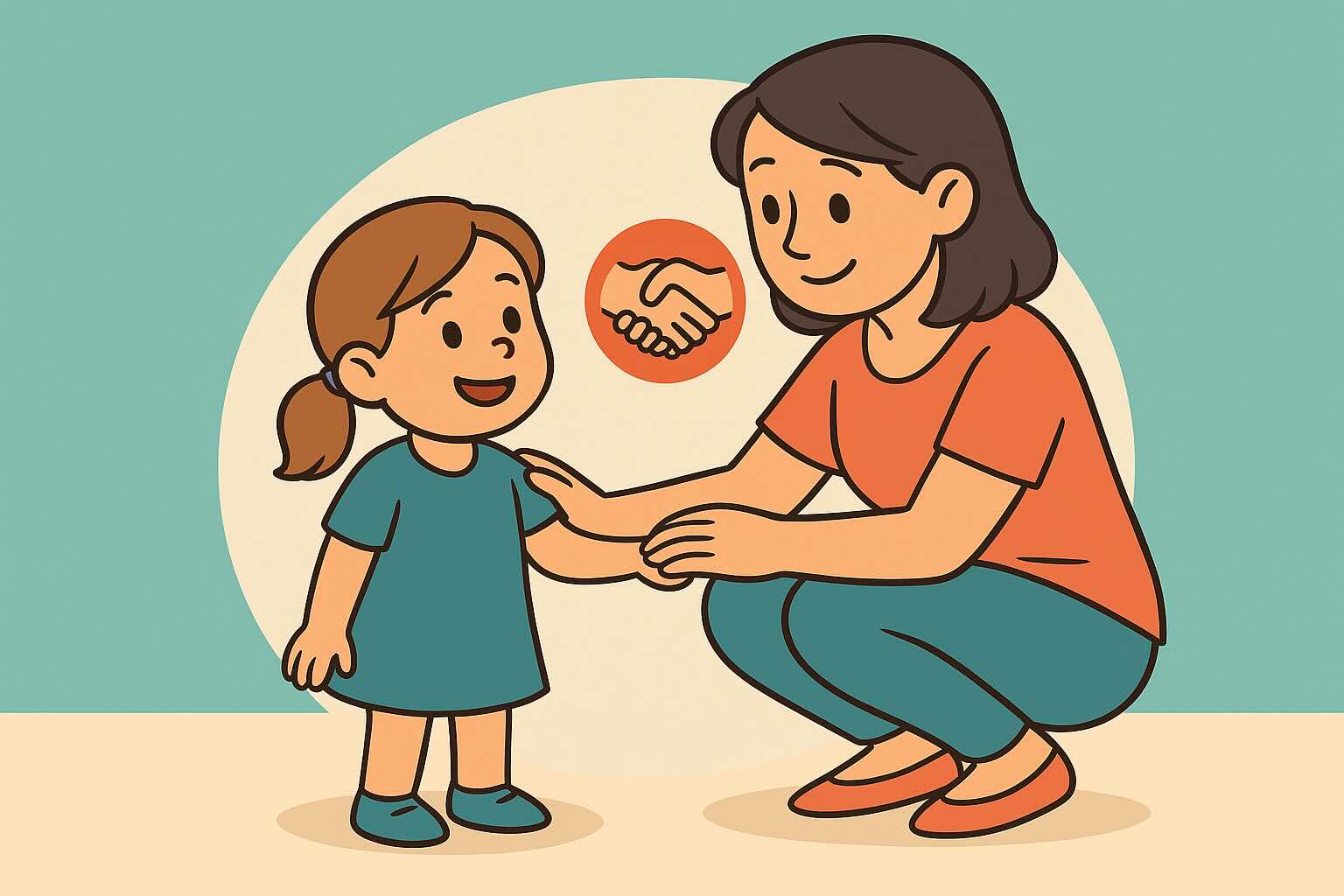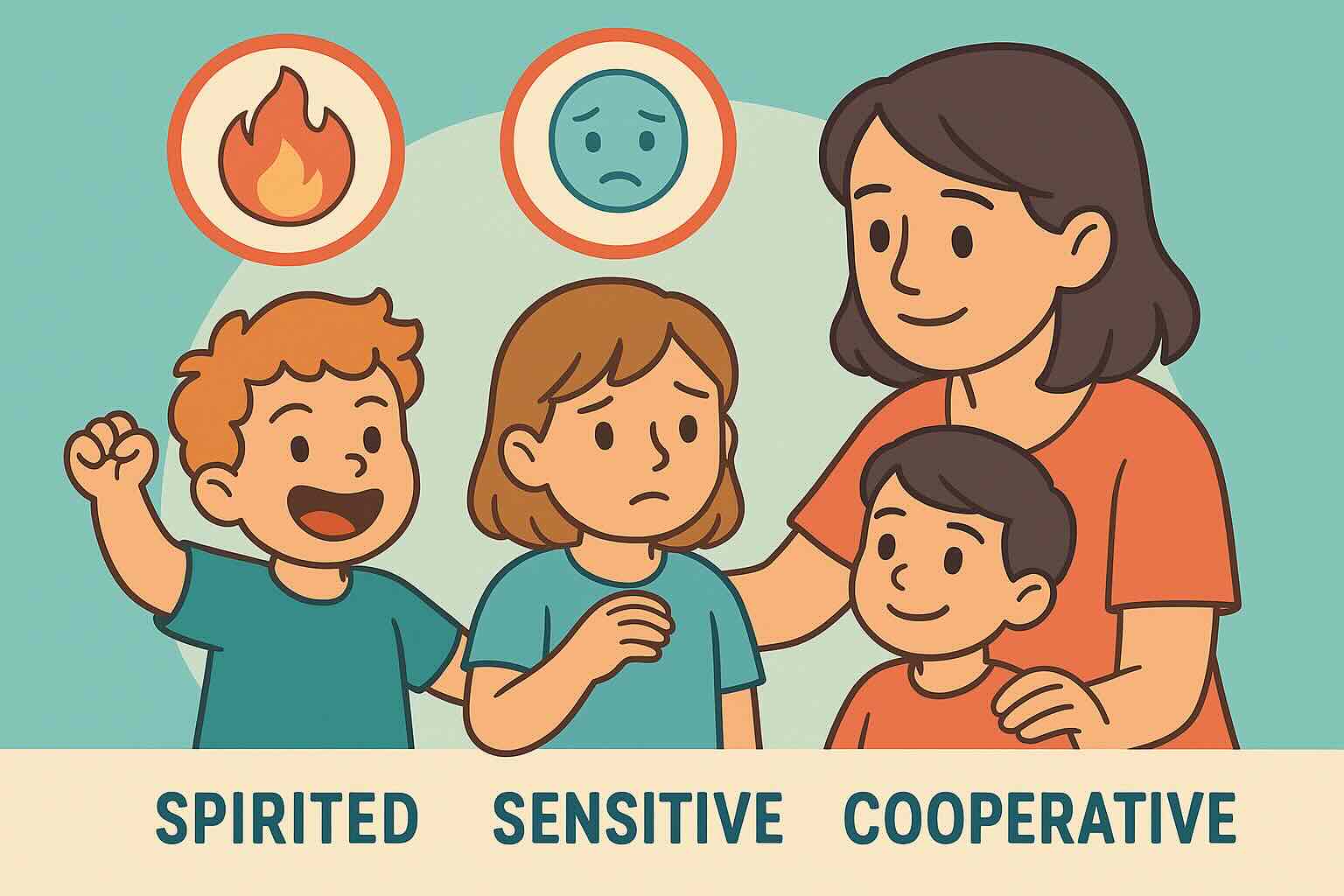Social Challenges: 6 Responses to No One Likes Me

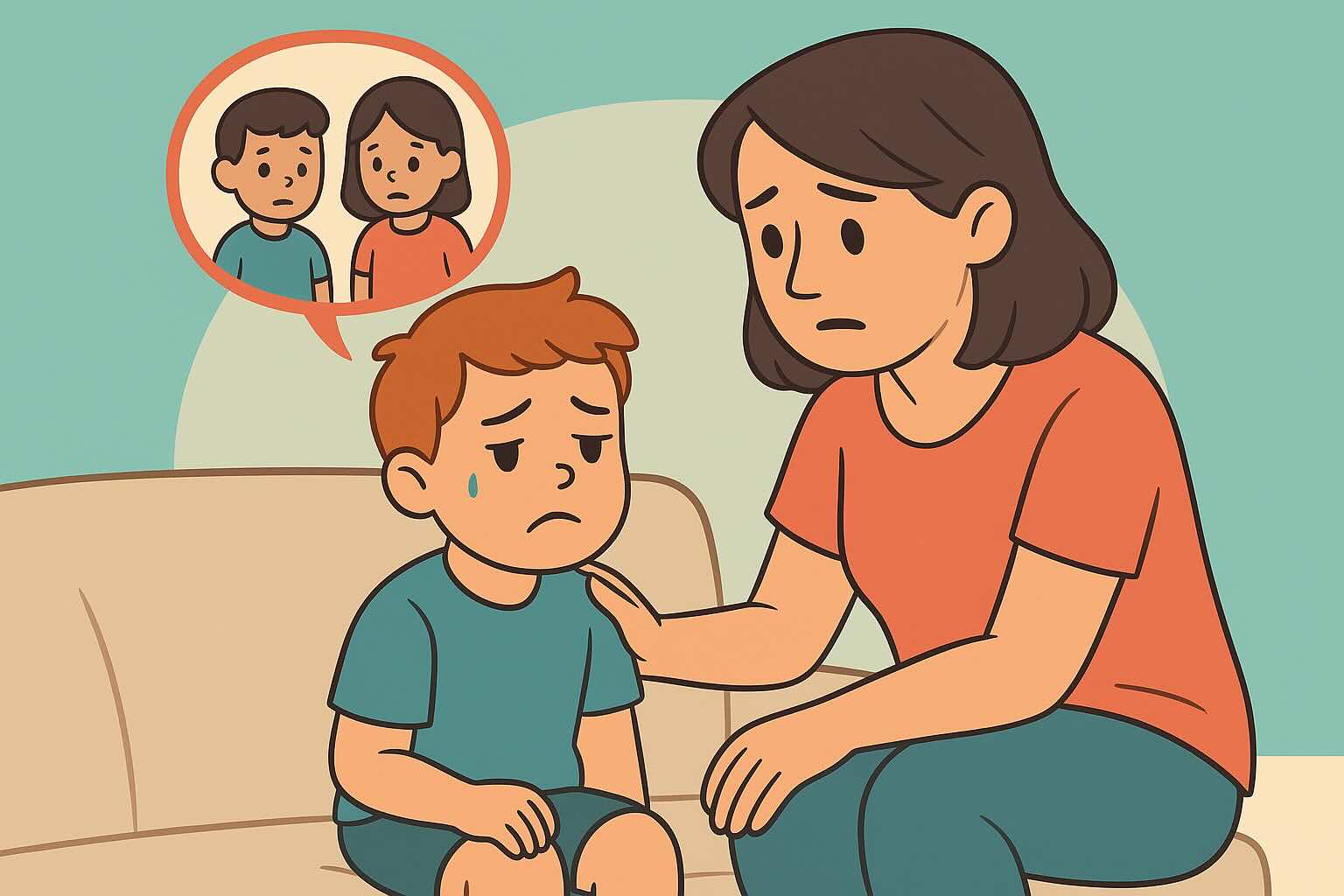
When your child comes home declaring "No one likes me!" or "Everyone was mean to me today!" your heart probably sinks. These moments feel devastating for both you and your child, especially when social interactions seem to go wrong repeatedly. The good news is that most social challenges for children ages 3-7 are temporary and represent normal developmental learning opportunities rather than permanent social problems.
This comprehensive guide provides evidence-based strategies to help your child navigate social difficulties, build resilience, and develop genuine friendship skills. Learn to distinguish between normal social bumps and concerning patterns while empowering your child with tools for lifelong social success.
For related social development, also check out our guides on child bragging behavior and helping competitive children. You may also find our guides on good sportsmanship and sibling teasing helpful.
What You'll Learn in This Guide
- Normal vs. Concerning Social Challenges - When to worry and when to support
- The Child's Perspective - Understanding limited social viewpoints and misinterpretations
- The Information-Gathering Approach - How to respond without panic or immediate rescue
- Building Social Resilience - Teaching perspective-taking and problem-solving
- Practical Social Skills - Concrete strategies for different social situations
- When to Involve School - Knowing when professional intervention is needed
- Long-Term Social Success - Building foundation skills for lifelong relationships
Estimated reading time: 14 minutes
Understanding Social Challenges in Early Childhood
Why Social Problems Feel So Big to Young Children
Developmental factors that intensify social experiences:
Black-and-White Thinking: Children ages 3-7 think in extremes. One friend saying "I don't want to play with you right now" becomes "Nobody likes me." They can't yet understand that relationships have natural ups and downs.
Limited Perspective-Taking: Young children primarily see situations from their own viewpoint. They may not understand that a friend who seems "mean" might actually be having a bad day, feeling sick, or dealing with their own problems.
Intense Emotional Reactions: Social disappointments feel overwhelming because children haven't yet developed emotional regulation skills to put experiences in perspective. Every social slight feels catastrophic.
Memory and Time Perception: Young children live very much in the present moment. Yesterday's successful playdate feels far away when today brought social disappointment.
Normal Social Development Patterns
Ages 3-4: Parallel and Beginning Interactive Play
- Learning to share space and materials with others
- Beginning to understand basic social rules and turn-taking
- Frequent conflicts over toys and attention
- Limited ability to maintain friendships across time
- Normal for interactions to be quite self-focused
Common social challenges at this age:
- Taking toys from others or difficulty sharing
- Emotional meltdowns when social interactions don't go as expected
- Confusion about social rules and expectations
- Difficulty reading social cues from other children
Ages 5-6: Developing Social Awareness
- Beginning to understand others have different thoughts and feelings
- Learning more complex social rules and expectations
- Forming preferences for specific playmates
- Starting to understand concepts like fairness and friendship
- Beginning to experience peer pressure and social comparison
Common social challenges at this age:
- Feeling left out when friends play together
- Difficulty navigating group dynamics and inclusion/exclusion
- Learning appropriate ways to enter play groups
- Managing disappointment when social plans change
Ages 7+: Complex Social Understanding
- More sophisticated understanding of friendship and loyalty
- Beginning to navigate more complex social hierarchies
- Developing ability to maintain friendships over time and conflict
- Understanding that people can have different relationships with different people
- Starting to develop individual identity separate from family
Common social challenges at this age:
- Managing more complex friend group dynamics
- Dealing with shifting alliances and changing friendships
- Learning to handle peer pressure and social expectations
- Navigating differences in interests and developmental pace
The Information-Gathering Approach: Responding Without Panic
When Your Child Reports Social Problems
Your immediate response sets the tone for how your child will handle social challenges long-term. Here's how to respond constructively:
Step 1: Stay Calm and Listen
Instead of immediate panic or protection mode:
- Take a deep breath and regulate your own emotions first
- Use a calm, curious tone rather than alarmed or worried voice
- Avoid immediately jumping to conclusions or solutions
- Give your child your full attention without distractions
Helpful initial responses:
- "Tell me more about what happened."
- "That sounds like it was hard for you."
- "I can see you're feeling upset about this."
- "Help me understand what that was like."
Step 2: Gather Specific Information
Ask clarifying questions to understand the full picture:
About the situation:
- "When you say everyone was mean, who specifically are you talking about?"
- "What exactly did they say or do?"
- "Where did this happen? Who else was around?"
- "How did the situation start?"
About timing and context:
- "Is this the first time this has happened, or has it happened before?"
- "Did anything happen earlier that might have led to this?"
- "How were things going before this incident?"
About their response:
- "What did you do when this happened?"
- "How did you feel in your body when this was happening?"
- "Did you try to say anything or ask for help?"
Step 3: Help Them See Different Perspectives
Without minimizing their feelings, gently expand their viewpoint:
Perspective-broadening questions:
- "I wonder why [friend's name] might have said that. Do you have any ideas?"
- "Have you ever been in a situation where you didn't want to play with someone, even though you liked them?"
- "What do you think [friend] was feeling when this happened?"
- "Is it possible that [friend] was having a hard day too?"
Important note: This isn't about excusing mean behavior, but helping your child develop more nuanced understanding of social situations.
Step 4: Encourage Problem-Solving
Guide them toward their own solutions:
- "What do you think you could do if this happens again?"
- "How would you like to handle this situation?"
- "What would make you feel better about this friendship?"
- "If your friend came to you with this problem, what would you suggest?"
Building Social Resilience and Perspective-Taking
Teaching the "Multiple Truths" Concept
Help your child understand that social situations often have multiple valid perspectives:
Example conversation: "So Emma didn't want to play the game you suggested. You felt sad because you thought she didn't like you. But maybe Emma was feeling tired from playing that game earlier, or maybe she really wanted to try the new game she brought. Both things can be true - you can feel disappointed AND Emma can have good reasons for her choice."
The "Social Detective" Approach
Teach your child to gather information before drawing conclusions:
Questions to teach your child to ask themselves:
- "What else might be happening here?"
- "How might the other person be feeling?"
- "Is there information I don't have?"
- "Could there be a misunderstanding?"
Practice scenarios during calm moments:
- "If someone doesn't say hi to you at school, what are some possible reasons?"
- "If a friend seems grumpy during play, what might be going on?"
- "If you're not invited to something, what could that mean?"
Building Emotional Resilience
Teach your child that disappointment is normal and manageable:
Resilience-building language:
- "Feeling left out is hard, and it's a feeling that comes and goes."
- "You've handled disappointing social situations before, and you can handle this one too."
- "Not every social interaction will go perfectly, and that's okay."
- "Learning to bounce back from social disappointments is a skill we all need."
Help them develop a "social recovery" toolkit:
- Deep breathing when feeling overwhelmed
- Positive self-talk ("This feeling will pass")
- Seeking support from trusted adults
- Engaging in enjoyable activities to rebuild confidence
- Remembering past successful social interactions
Practical Social Skills for Different Situations
Entering Play Groups
Teach specific strategies for joining ongoing play:
The Observation Strategy: "Watch what the group is doing for a minute before trying to join. Then ask 'Can I play too?' or 'What are you playing?'"
The Contribution Strategy: "Think about what you could add to their game. Maybe you have an idea that would make it more fun, or you could offer to help with something they need."
The Parallel Entry: "Start playing something similar nearby. Often other children will become curious and invite you in naturally."
Handling Rejection or Exclusion
When someone says "You can't play":
Teach appropriate responses:
- "Okay, maybe next time. What could I do while I wait?"
- "Is there a way I could help or be part of this?"
- "That's disappointing. I'll find something else to do."
Help them understand exclusion isn't always personal:
- Sometimes groups are already full or at capacity
- Some games work better with certain numbers of children
- People sometimes want to play with just one friend
- Exclusion doesn't mean they don't like you as a person
Managing Social Misunderstandings
When conflicts arise:
The "Repair" Conversation: Teach your child to address misunderstandings directly:
- "I think there might be a misunderstanding. Can we talk about what happened?"
- "I'm sorry if I hurt your feelings. That wasn't what I meant to do."
- "I felt hurt when [specific behavior]. Can you help me understand what happened?"
The "Reset" Strategy: Sometimes the best approach is starting fresh:
- "We seem to be having a hard time playing together right now. Should we try a different game?"
- "I think we're both feeling frustrated. Want to take a break and try again?"
Building and Maintaining Friendships
Teach friendship skills explicitly:
Good Friend Behaviors:
- Listening when others talk
- Sharing toys and taking turns
- Including others when possible
- Being kind when someone makes a mistake
- Celebrating friends' successes
- Offering help when someone is struggling
Friendship Maintenance:
- Checking in with friends: "How are you doing?"
- Remembering things that are important to friends
- Making an effort to include friends in activities
- Apologizing when you make mistakes
- Forgiving friends when they make mistakes
Age-Specific Social Coaching Strategies
Ages 3-4: Basic Social Foundation
Focus areas:
- Learning to share and take turns
- Understanding basic social rules (gentle touches, using words)
- Developing emotional vocabulary
- Learning to ask for help from adults
Practical strategies:
- Practice social scripts during pretend play
- Use books to discuss character feelings and social situations
- Role-play common social scenarios (sharing, asking to play)
- Teach basic emotional regulation strategies
Parent support:
- Arrange shorter, structured playdates
- Stay nearby to offer coaching and support
- Debrief social interactions afterwards
- Focus on effort and small improvements rather than perfect behavior
Ages 5-6: Developing Social Sophistication
Focus areas:
- Understanding others' perspectives and feelings
- Learning to navigate group dynamics
- Developing conflict resolution skills
- Building empathy and social awareness
Practical strategies:
- Discuss "what if" social scenarios regularly
- Practice perspective-taking through stories and real situations
- Teach specific language for expressing feelings and needs
- Help them understand social cues and body language
Parent support:
- Facilitate opportunities for social practice
- Discuss social observations from school and community
- Help them analyze social situations without judgment
- Support their developing independence while remaining available
Ages 7+: Complex Social Navigation
Focus areas:
- Managing changing friendships and group dynamics
- Understanding loyalty, trust, and friendship complexities
- Developing individual identity within social groups
- Learning to handle peer pressure and social expectations
Practical strategies:
- Discuss complex social scenarios and multiple solutions
- Help them understand that relationships naturally change over time
- Teach them to advocate for themselves and others
- Support their developing values and individual preferences
Parent support:
- Provide guidance while encouraging independence
- Discuss social challenges from a problem-solving perspective
- Help them understand social hierarchies and group dynamics
- Support their individual interests and identity development
When to Involve School and Seek Professional Help
Working with Teachers and School Staff
When to contact the school:
- Social problems persist for more than 2-3 weeks
- Your child expresses fear about going to school
- Academic performance is affected by social stress
- You suspect bullying or aggressive behavior
- Your child's reports suggest systematic exclusion
How to approach school contact:
- Share specific observations rather than general concerns
- Ask about the teacher's perspective on your child's social interactions
- Collaborate on strategies that can be used both at home and school
- Request regular updates on social progress
Questions to ask teachers:
- "How does my child interact with peers during different parts of the day?"
- "Are there particular social situations that seem challenging?"
- "What social strengths do you see in my child?"
- "How can we work together to support their social development?"
Professional Support Options
When to consider professional help:
Individual therapy for your child:
- Persistent social anxiety that interferes with daily functioning
- Aggressive or concerning behavior toward peers
- Significant mood changes related to social difficulties
- Trauma related to social experiences
Family therapy:
- Social challenges seem connected to family dynamics
- Siblings struggling with social comparison issues
- Family stress significantly impacted by child's social difficulties
Social skills groups:
- Child would benefit from structured practice with peers
- Specific skill deficits that need targeted intervention
- Opportunities to practice skills in supportive environment
School-based support:
- 504 plans or IEPs if social challenges are related to disabilities
- Counseling services for ongoing social-emotional support
- Structured social groups or lunch bunches
- Peer mediation or conflict resolution programs
Building Long-Term Social Success
Teaching Social Growth Mindset
Help your child understand that social skills, like academic skills, develop over time with practice:
Growth mindset language:
- "You're still learning how to handle tricky social situations."
- "Each social challenge helps you get better at understanding people."
- "Everyone makes social mistakes - that's how we learn."
- "Your friendship skills are growing stronger all the time."
The Family as Social Laboratory
Use family interactions to build social skills:
- Practice conflict resolution during sibling disputes
- Model empathy and perspective-taking in family discussions
- Demonstrate how to repair relationships after conflicts
- Show how to celebrate others' successes genuinely
Family activities that build social skills:
- Board games that require cooperation and turn-taking
- Family meetings where everyone's voice is heard
- Community service activities that build empathy
- Discussion of characters' social challenges in books and movies
Preparing for Lifelong Social Success
Help your child understand that social skills are life skills:
- Communication and listening abilities
- Empathy and perspective-taking
- Conflict resolution and problem-solving
- Resilience and emotional regulation
- Leadership and collaboration
- Respect for diversity and individual differences
Real-Life Success Stories
Maya's Story: From "Nobody Likes Me" to Social Confidence
"Maya (5) would come home from kindergarten several times a week declaring that nobody liked her and everyone was mean. We started asking specific questions instead of immediately trying to comfort her. Usually, it turned out that one child had said they didn't want to play her preferred game, or someone had accidentally bumped into her. We helped her see that these weren't signs that people didn't like her, just normal parts of playing with others. We practiced different ways she could respond to disappointment and taught her to ask herself 'What else might be happening here?' It took about 6 weeks, but now she rarely comes home with these big social concerns. When she does have actual social challenges, she's much better at problem-solving and seeing different perspectives."
James's Story: Learning to Navigate Group Dynamics
"James (6) struggled with feeling left out when his friends played together without him. He would get very upset and either withdraw completely or try to force his way into their games inappropriately. We helped him understand that sometimes friends play in smaller groups and that doesn't mean they don't like him. We practiced ways he could handle feeling left out - finding other friends, asking to join respectfully, or doing something he enjoyed alone. We also arranged one-on-one playdates where he could build stronger individual friendships. After about 2 months, he was much more confident navigating group dynamics and had developed some really close friendships."
Sofia's Story: Building Resilience After Social Rejection
"Sofia (7) had a devastating experience when her friend group suddenly excluded her from their activities. She was heartbroken and convinced she would never have friends again. We validated her pain while helping her understand that friendship groups sometimes change, especially at her age. We worked on building her confidence through individual activities she enjoyed, arranged playdates with children from other contexts, and helped her develop strategies for making new friends. We also worked with her teacher to understand the classroom dynamics. It took about 3 months, but Sofia developed new friendships and, importantly, the resilience to handle future social disappointments much better."
Your 8-Week Action Plan for Social Challenges
Weeks 1-2: Information Gathering and Perspective Building
- Practice calm, information-gathering responses to social concerns
- Begin helping your child see different perspectives on social situations
- Start regular conversations about friendship and social dynamics
- Focus on validation while gently expanding viewpoints
Weeks 3-4: Skill Building and Practice
- Teach specific social skills through role-play and discussion
- Practice problem-solving strategies for common social challenges
- Begin building "social detective" and perspective-taking skills
- Create opportunities for structured social practice
Weeks 5-6: Building Resilience and Independence
- Encourage your child to try new social strategies independently
- Continue building emotional resilience and coping strategies
- Address any persistent patterns or concerning behaviors
- Collaborate with school if needed for consistent support
Weeks 7-8: Long-Term Social Success
- Focus on building lasting friendship skills and social confidence
- Help your child understand social growth and development
- Celebrate progress and continued learning
- Plan for ongoing social skill development and support
Key Takeaways: Supporting Your Child Through Social Challenges
- ✅ Most social challenges are temporary and part of normal development
- ✅ Stay calm and gather information before reacting to social concerns
- ✅ Help your child see multiple perspectives without dismissing their feelings
- ✅ Teach specific social skills through practice and discussion
- ✅ Build resilience and emotional regulation alongside social skills
- ✅ Work collaboratively with school when challenges persist
- ✅ Focus on long-term social growth rather than fixing immediate problems
- ✅ Model healthy social skills through family interactions
- ✅ Seek professional support when challenges significantly impact wellbeing
Remember: Your child's social challenges are opportunities for growth and learning. With your support and guidance, they can develop the resilience and skills needed for lifelong social success. Most importantly, your calm, supportive response teaches them that social difficulties are manageable and temporary.
This article is based on developmental psychology research, social skills intervention studies, and child therapy best practices. Individual results vary based on child temperament, social environment, and family support. Consult with school counselors or child psychologists if social challenges significantly impact your child's emotional wellbeing or daily functioning.
Expert Content Library
Access multimedia resources, articles, and expert-reviewed content organized by topics and your child's age.
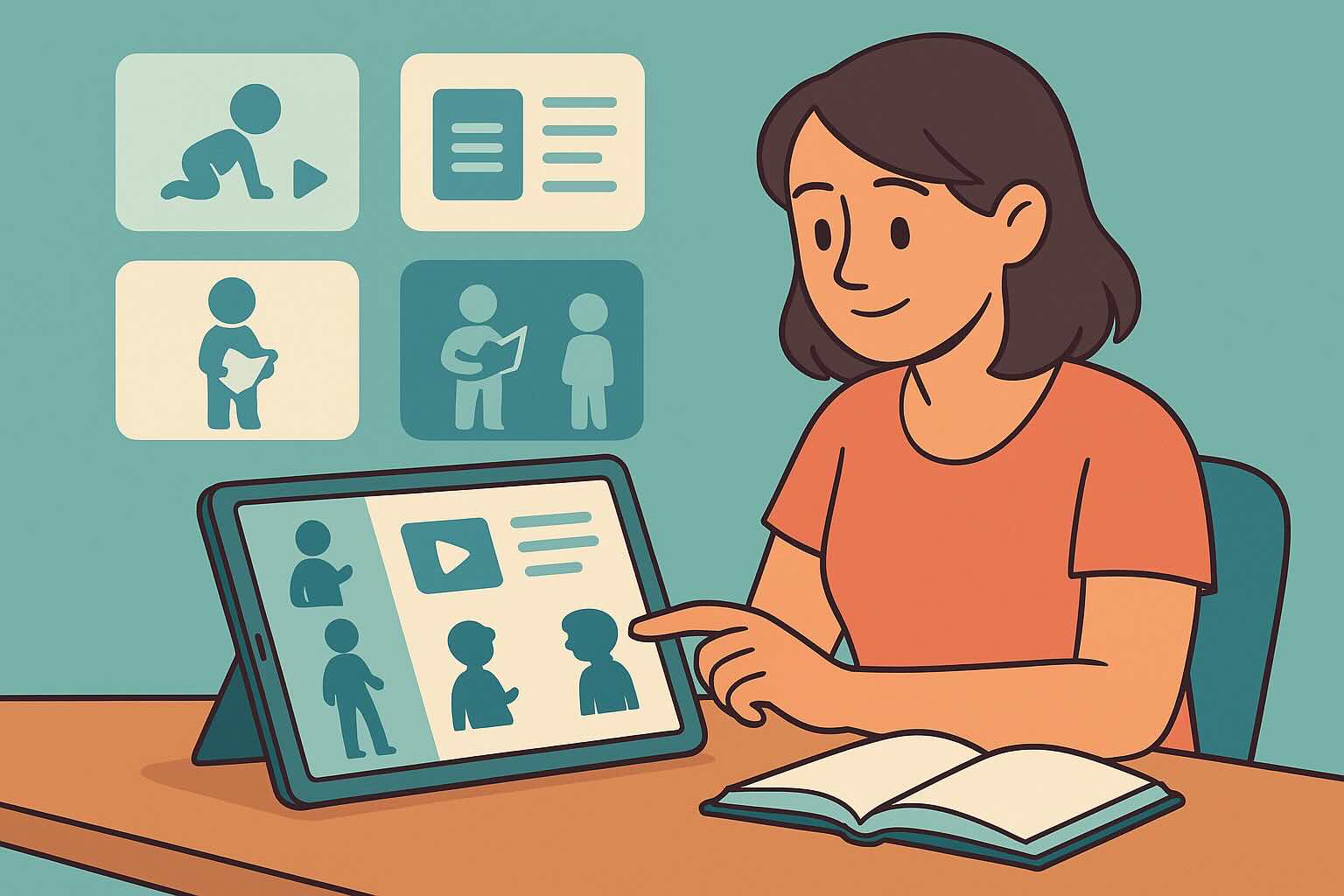
24/7 AI Parenting Assistant
Get instant, personalized advice with expert-curated parenting knowledge. Chat with your AI coach anytime, anywhere.
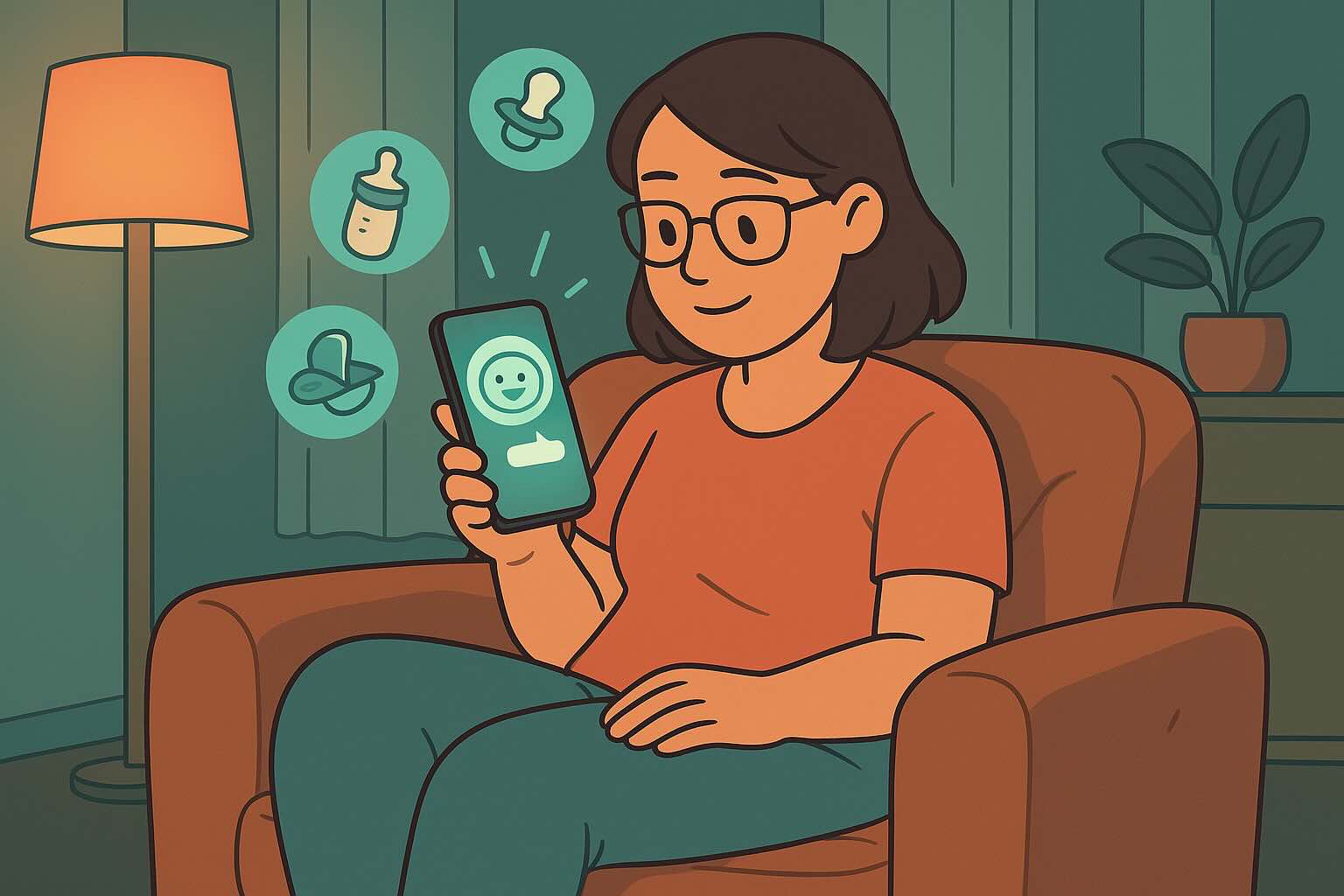
Social Skills Toolkit
Help your child navigate social challenges with resilience-building strategies, perspective-taking tools, and friendship skills.
Frequently Asked Questions
Need personalized support?
RootWise's AI coach can provide tailored strategies for your specific situation, available 24/7 when you need it most.
Learn More About AI Coaching →